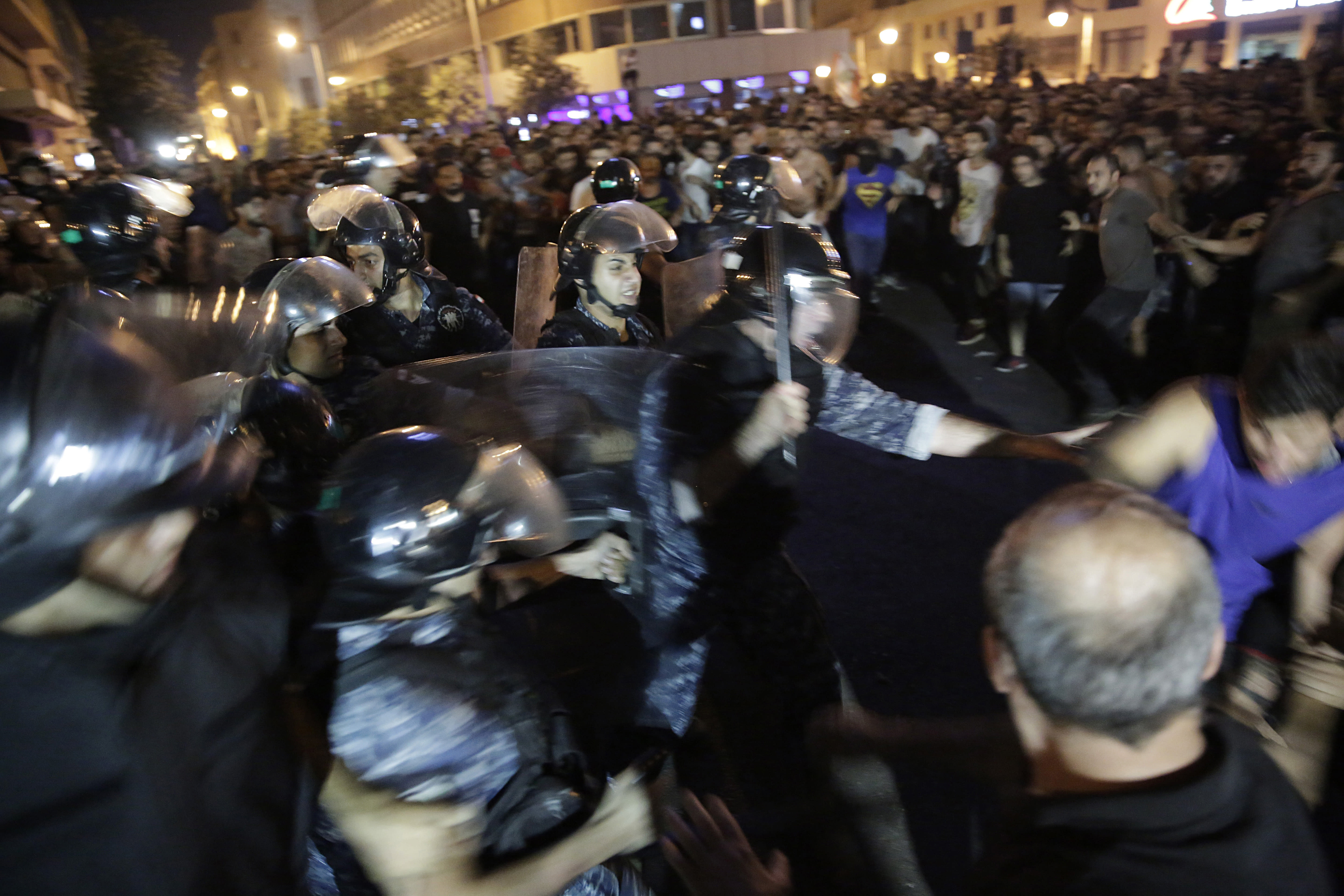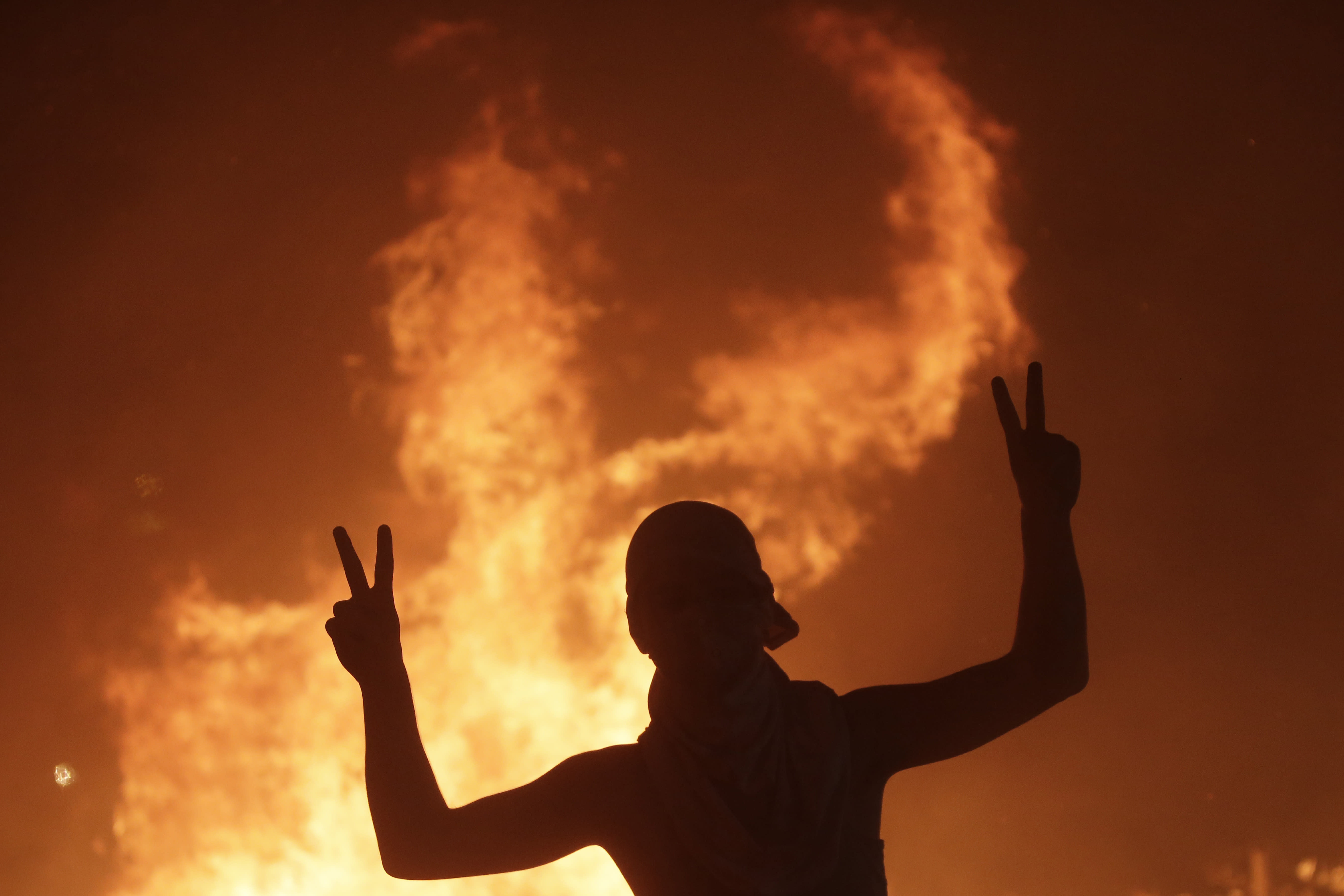![A 20-cent-per-day fee could potentially bring in up to $250m in annual revenues from Lebanon's estimated 3.5 million VoIP users [File: Rupak De Chowdhuri/Reuters]](https://www.aljazeera.com/mritems/imagecache/mbdxxlarge/mritems/Images/2019/10/17/8e1502c8123e49dbae7efc46220e1a48_18.jpg)
by reuters – Lebanon’s cabinet has agreed to impose a fee on calls over WhatsApp and other similar applications, as part of efforts to raise revenues in the country’s 2020 draft budget, a minister said on Thursday. Information Minister Jamal al-Jarrah said on Thursday that the cabinet had agreed a charge of 20 cents per day for calls via voice over internet protocol (VoIP), used by applications that include FaceTime, Facebook calls, and Facebook-owned Whatsapp. The fee could potentially bring in up to $250m in annual revenues from the country’s estimated 3.5 million VoIP users. The country has only two service providers, both state-owned, and some of the most costly mobile rates in the region.
Lebanese TV channels cited Minister of Telecommunications Mohammad Choucair as saying the fee would “not be applied without something in return”, which he would announce next week. Finance Minister Ali Hassan Khalil said last month there were no new taxes or fees in the draft 2020 budget he sent to the cabinet. Lebanon is under pressure to approve the 2020 budget to unlock some $11bn pledged at a donor conference last year, conditional on fiscal and other reforms.
Prime Minister Saad Hariri has said the government would work to further reduce the 2020 budget deficit. Foreign allies are not yet fully convinced the Lebanese government is serious about reforms, and a French envoy last month criticised the pace of work. The government only approved the 2019 budget halfway through this year. Lebanon had until 2017 had gone 12 years without a budget. Ahead of a cabinet session on Thursday, Jarrah said ministers would discuss a proposal to raise value-added tax (VAT) by two percentage points in 2021 and then another two percentage points in 2022, until the VAT reaches 15 percent. After ministers agree on the 2020 draft budget, they must send it to parliament for approval. SOURCE: REUTERS NEWS AGENCY
BEIRUT (AP) — Lebanon erupted in protests Thursday over the government’s plans to impose new taxes amid a severe economic crisis, with people taking their anger out on politicians they accuse of corruption and decades of mismanagement. The protests started with few dozen people gathering in central Beirut and quickly escalated into some of the largest demonstrations since an uprising over a garbage crisis in 2015 with thousands holding scattered protests across the country.
Hundreds of people gathered near the government headquarters and parliament building in central Beirut where riot police were deployed. The protesters chanted: “Revolution!” and “Thieves!” — the latter a reference to widespread corruption in a country that has one of the highest debt loads in the world. Some protesters threw stones, shoes and water bottles at security forces and scuffled with police. The protests could plunge Lebanon into a political crisis with unpredictable repercussions on the economy which has been in steady decline. Some of the protesters said they would stay in the streets until the government resigns.
Protesters closed major intersections with burning tires and garbage containers, causing traffic jams. As the protests escalated, the minister of education declared that public and private schools and universities would close Friday. Years of regional turmoil — worsened by an influx of 1.5 million Syrian refugees since 2011 — are catching up with the small Arab country. Lebanon has the third-highest debt level in the world, currently standing at about $86 billion, or 150% of its gross domestic product. “We refuse what’s happening in Lebanon… The failure of our government to do at least the minimum … has given us no other choice than to take the streets,” said writer and director Lucien Bourjeily. “They are putting more and more taxes on us even though we cannot take any more taxes,” he said.
When the motorcade of Education Minister Akram Chehayeb padded through downtown Beirut, protesters punched and kicked the cars. One bodyguard jumped out of an SUV and fired an automatic rifle into the air. Chehayeb rushed out of his car and pushed the guard away and prevented him from shooting again. No one was hurt in the incident. Protesters also closed roads in other parts of Lebanon, including the northern city of Tripoli, Tyre in the south and Baalbek in the northeast. The government is discussing the 2020 budget, and new taxes have been proposed, including on tobacco, gasoline and some social media telecommunication software such as WhatsApp.
Telecommunications Minister Mohamed Choucair appeared on TV after the protests began and said Prime Minister Saad Hariri has asked him to drop the proposed tax on WhatsApp. As protests continued, demonstrators clashed briefly with riot police outside the government headquarters, an Ottoman-era compound known as the Grand Serial. “We have no jobs, we have money and we have no future,” one protester screamed. International donors have been demanding that Lebanon implement economic changes in order to get loans and grants pledged at the CEDRE economic conference in Paris in April 2018. International donors pledged $11 billion for Lebanon but they sought to ensure the money is well spent in the corruption-plagued country.
Despite tens of billions of dollars spent since the 15-year civil war ended in 1990, Lebanon still has crumbling infrastructure including daily electricity cuts, trash piles in the streets and often sporadic, limited water supplies from the state-owned water company. There have been concerns over the country’s financial stability as well. Earlier this month, the local currency reached 1,650 Lebanese pounds to the dollar at exchange shops after it had been stable at 1,500 since 1997. The official price is still pegged at 1,500 pounds to the dollar, but it’s difficult to get hard currency at this rate from local banks.





